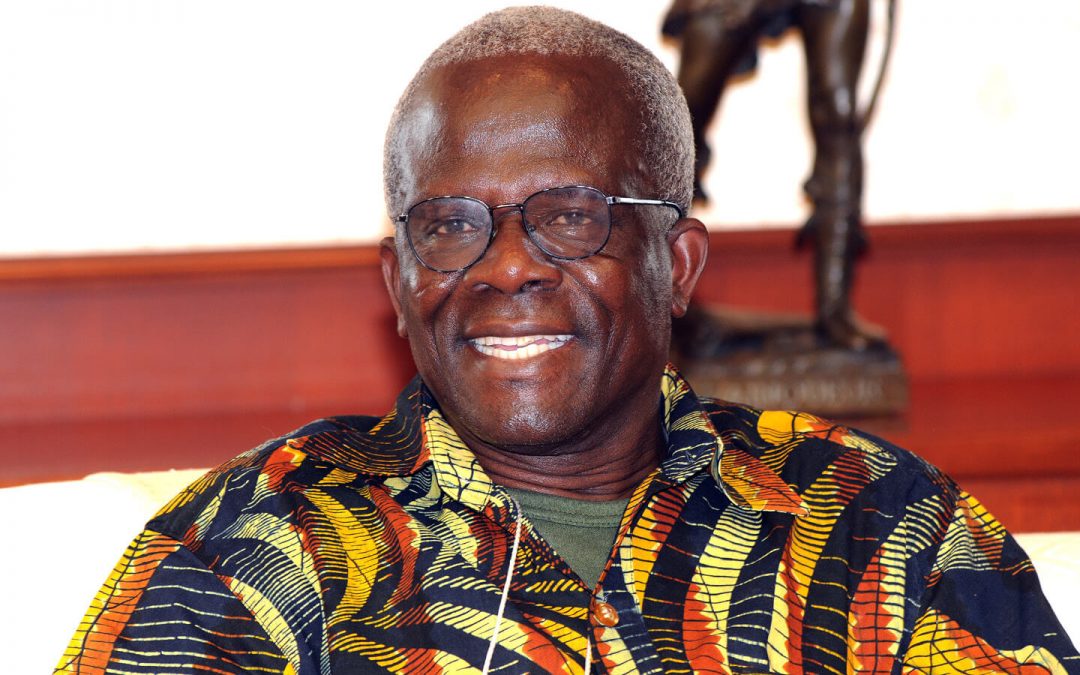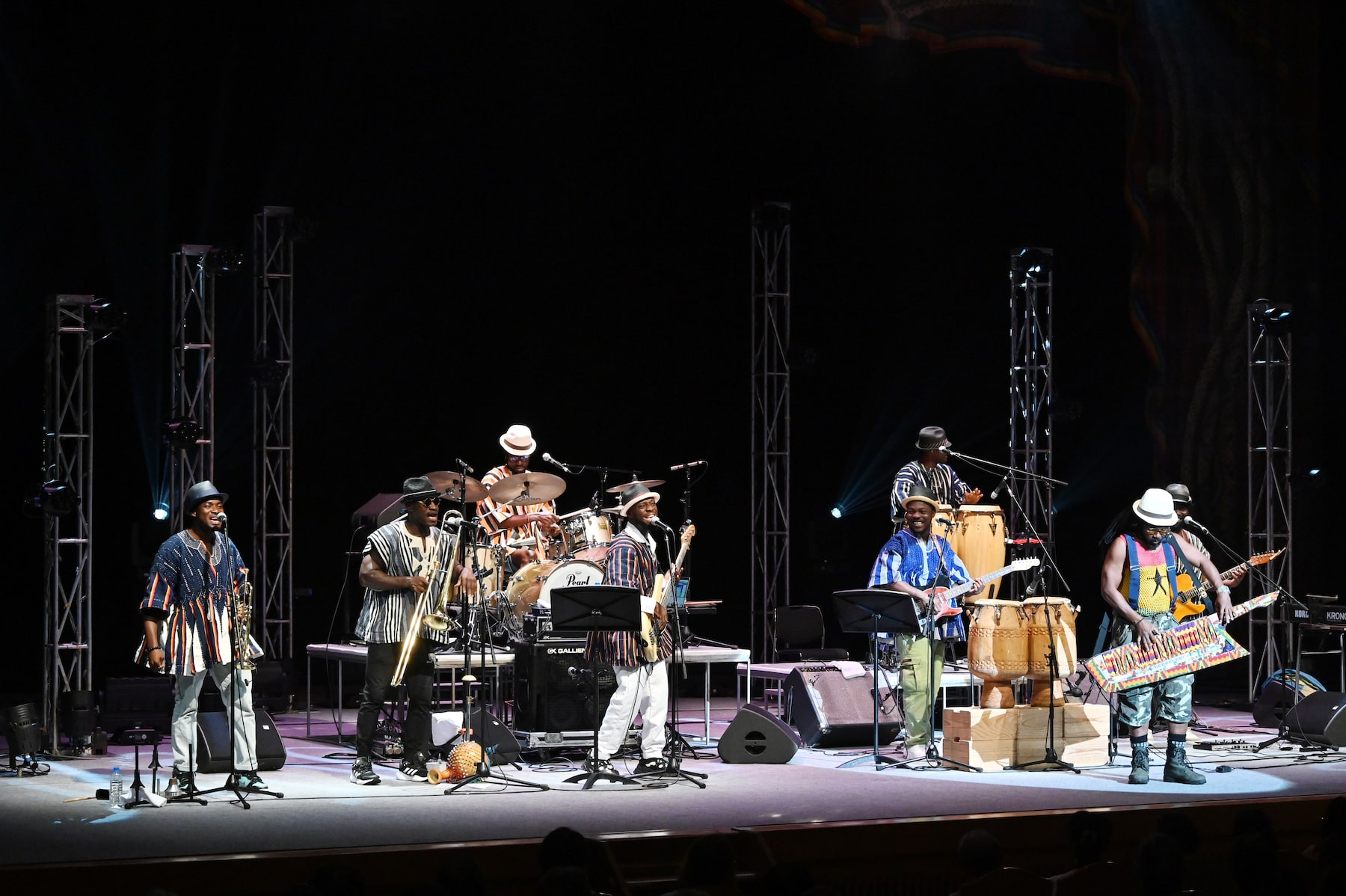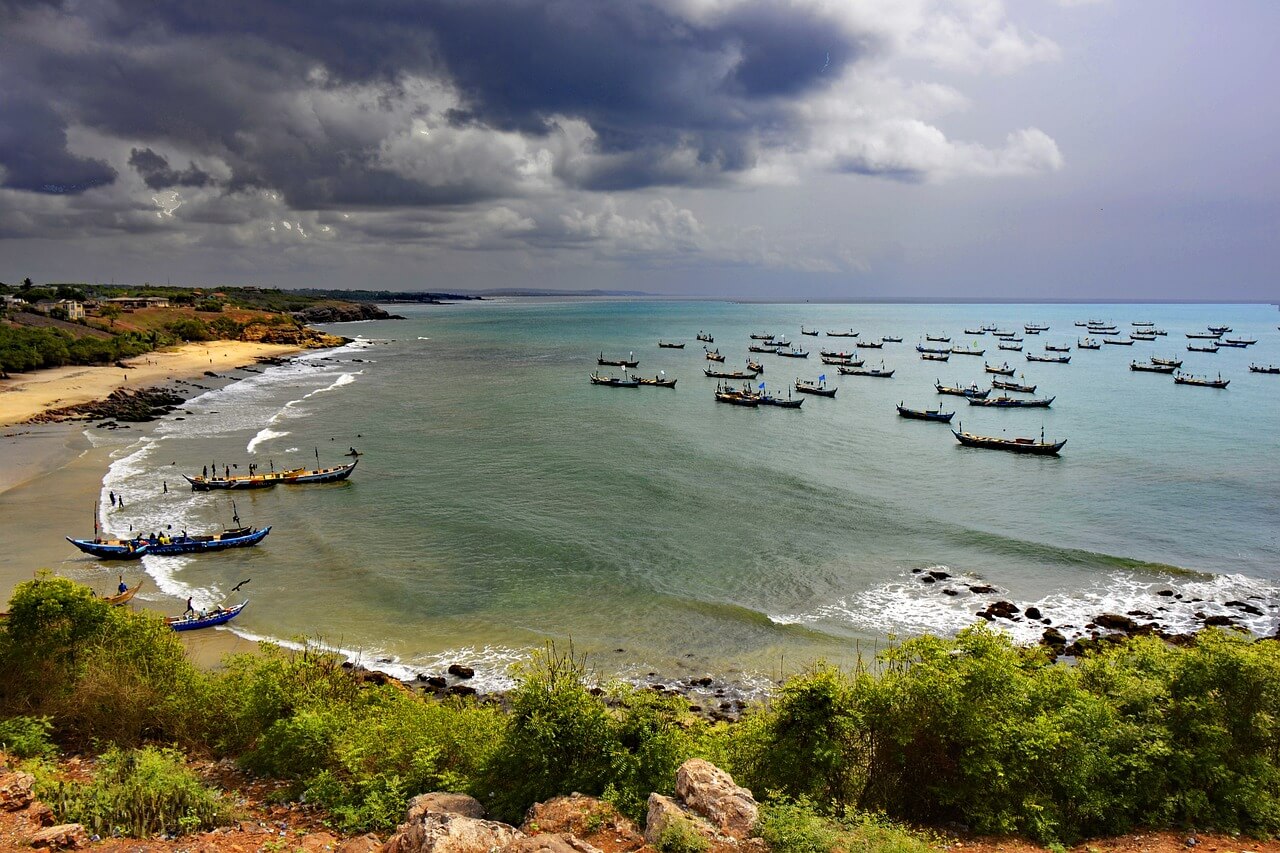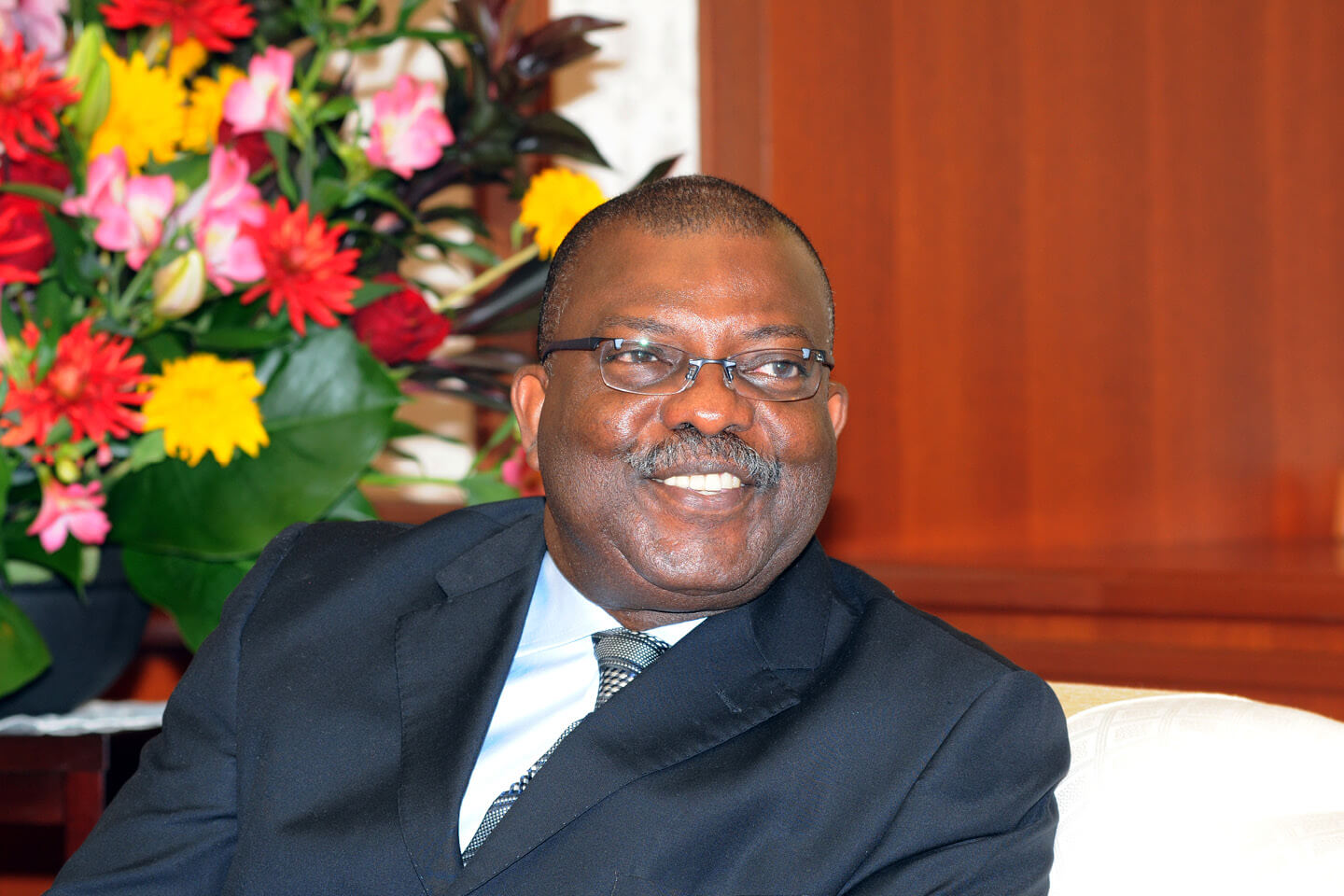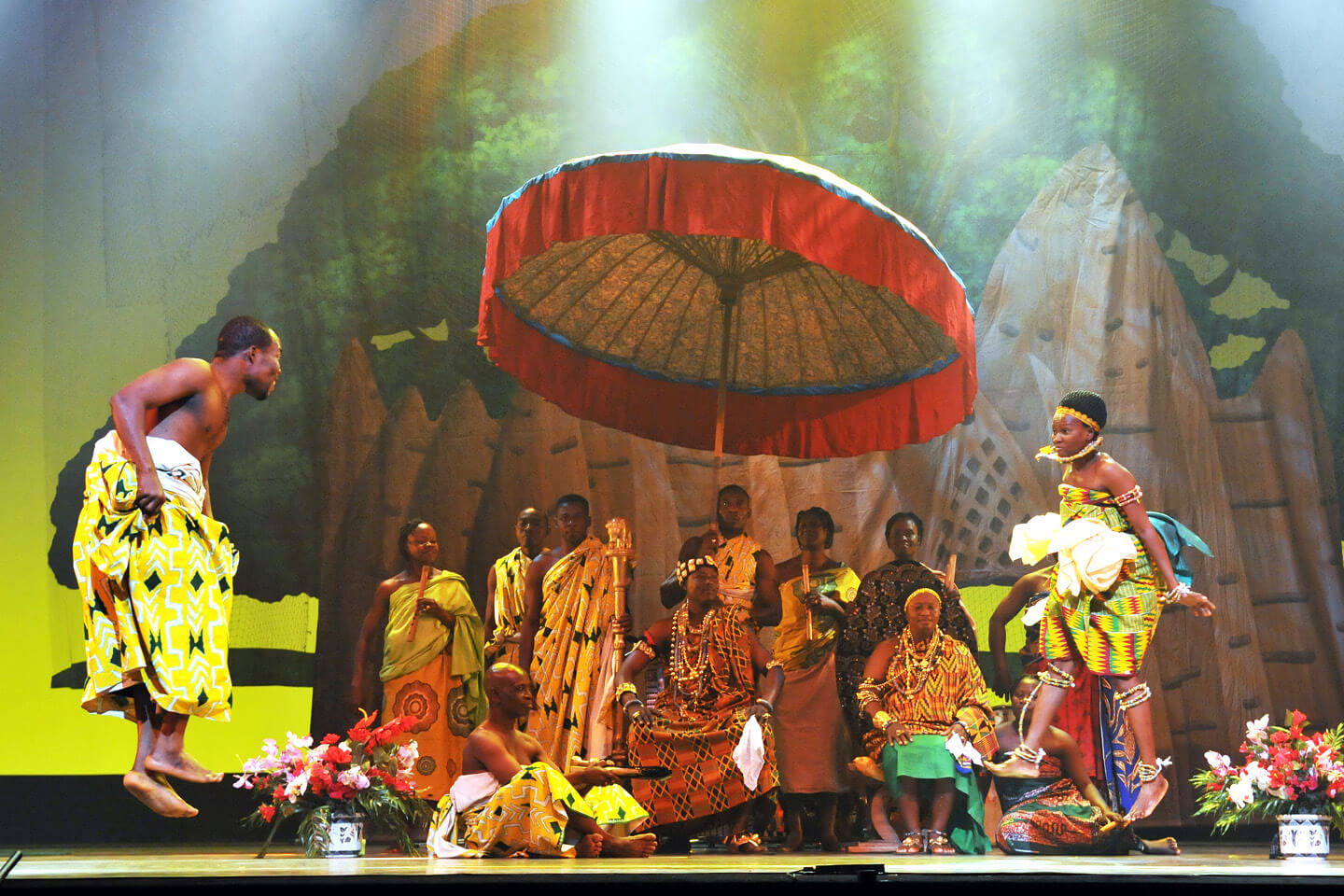Expressing Life and Traditions in Dance
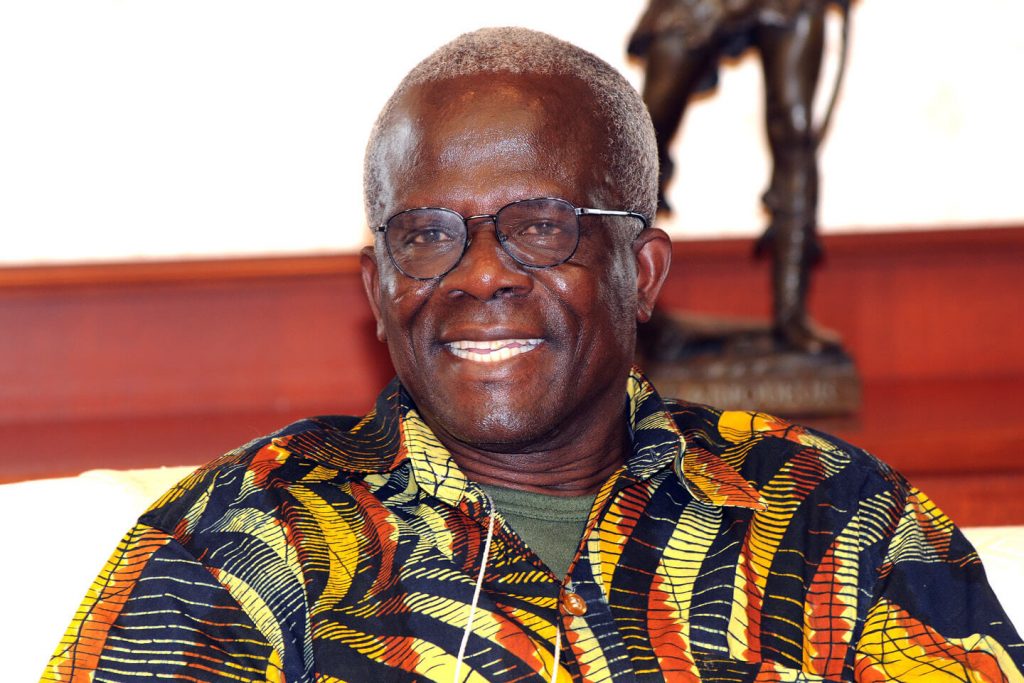
Min-On: To begin, please tell us about your background and how your musical career developed.
David Amoo: I was born near the Ghanaian capital of Accra in a village called Avenor, which is famous for traditional music and dance. In fact, I was born into a great family of musicians and artists skilled in drumming, dancing and singing, so I have always been surrounded by music and dance, and this inspired the development of my own musical career. Eventually, at the age of 30, I joined the school of performing arts at the University of Ghana. When the National Theatre was established in1992, I began working there as a stage director. I took up my current position as artistic director five years ago, in 2007.
Min-On: The Ensemble’s performance was superb in terms of its artistic quality and technique, but it was also a very energetic expression of joy and the spirit of life in Africa.
Amoo: Our performance is not like an elegant ballet or modern dance; rather, it is the dance of the people, representing the lives and traditions of different tribes and communities in Ghana. During the period of European colonization of Ghana, the colonial government prohibited Ghanaian traditions of dance and music, and instead we were encouraged to sing hymns. So for a long time, we could not hold any traditional ceremonies to enjoy our own music and dance. But after Ghana won its independence, our first president worked to bring our traditional cultures together, bringing different people together to form a unified nation of Ghana. The roots of our dance company go back to this time. Since then, our company has had a tradition of gathering talented young artists who show mastery of particular dance forms from different regions of Ghana, and training them to express a variety of dance traditions from Ghana and other parts of Africa.
Min-On: You are a choreographer as well as a master drum maker. Do you know how many types of dance and drums actually exist in Ghana?
Amoo: I’ve never counted how many, but there are a lot—and even more in Africa as a whole. The type of drum played is determined by where a particular dance form comes from. Ghana has ten major regions across the country, and each region has its own unique tradition of dance and accompanying drums. The region where I come from alone has more than 50 distinct dance forms, so we selected only a few important and special dances from different regions for this tour. Drumming is a key element in Ghanaian dance, especially in the forested regions located in the Central Belt of Ghana. There you can find many species of tree, including mahogany, oak and tweneboa, all of which produce different kinds of drums. Tweneboa actually means ‘drum tree’—the center of the trunk is soft enough to hollow out, while the outside is very hard—perfect for making large drums.
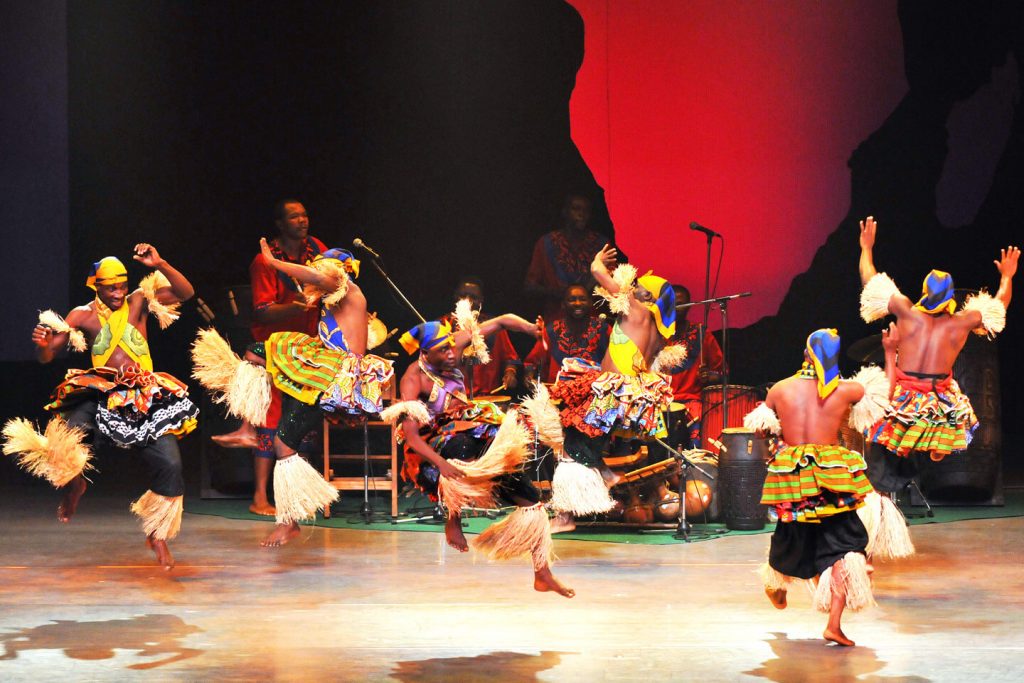
Min-On: Another unique characteristic of your performance was that the performers were dancing even while singing and playing drums. It seems to be a natural part of daily life for the Ghanaian people.
Amoo: As Africans, it is very natural for us to sing and dance whenever and wherever we go. That is obvious when you see how we watch a soccer game—enthusiastically cheering while playing drums and singing and dancing. We are not a quiet people! Singing and dancing is a natural part of our lives right from birth. A mother carries her baby on her back and sings and dances all the time—even at a funeral—so the baby naturally senses the rhythm from her body and this is imbued deeply into the child’s own life. In particular, song is a very important means of communication in Ghana, so everybody sings. People celebrate the positive by singing, but they also protest against the negative by singing. So our challenge was to transform those songs and dances from day-to-day life into a style for presentation on stage.
Min-On: As the artistic director, what are the challenges in pursuing your company’s goals?
Amoo: Since its establishment, the company has been financially supported by the government. But while we have sufficient funds to maintain our activities within Ghana, we cannot afford to travel abroad and tour independently. We therefore deeply appreciate the Min-On Concert Association sponsoring us and making this Japan tour possible. Our first president, Dr. Kwame Nkrumah, established the company to promote cultural activities with a view to making Ghana one nation and Africa one union. Thus, I deeply respect and admire Dr. Ikeda’s vision of establishing the Min-On Concert Association with the same purpose in mind, of promoting cultural exchange on a global scale. He has such a brilliant mind and so much wisdom, and he has entered into dialogues with many different people around the world, as well as writing many books to share his vision and wisdom for world peace. Indeed, Min-On is the dream of all artists, and I believe it is the only organization today to fulfill the dreams and promises of performing artists around the world. I knew only a little about the role of cultural activities before, but I learned a great deal from Min-On through this Japan tour, and now I am determined to take this knowledge back home to share with more people for the sake of the future of Africa.


